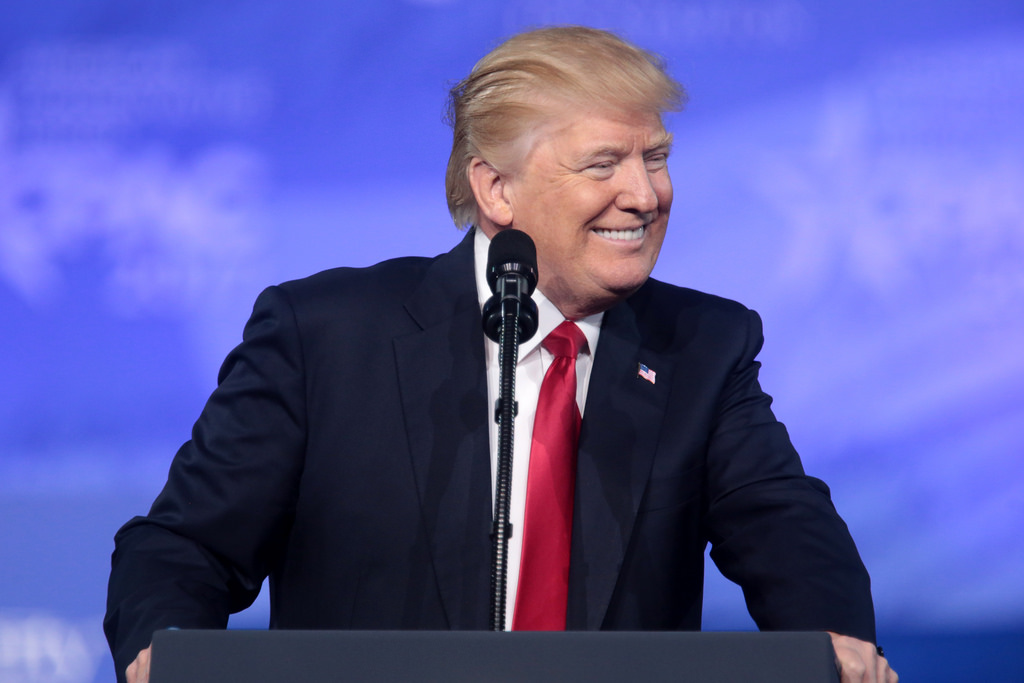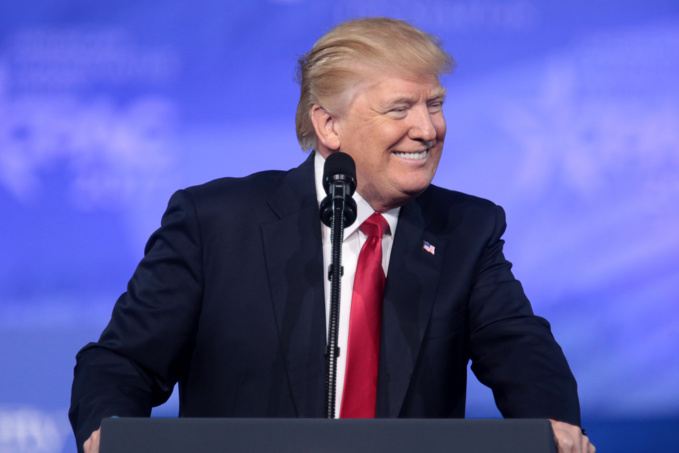On the night of December 2, the US Senate, by a fragile majority of 51 votes against 49, supported the bill on tax reform. This is the first major Republican success in the Trump era. No administration was able to carry out a comprehensive tax reform in for more than 30 years, since Reagan times. At the same time, both business and the population have expressed more and more complaints about the complexity of tax legislation and the high level of taxation in recent years. After unsuccessful attempts to abolish Obamacare, a new failure would leave Trump and his party without serious achievements ahead of the midterm elections scheduled for 2018 in Congress, which are traditionally considered preparation for the presidential campaign. Now the Republicans have something to show the voters.
Another fact, important for Trump, is that he fulfilled one of his three main pre-election promises to the business (two other promises are abolition of Obamacare and a serious increase in investment in infrastructure). The big business, which was previously disappointed with the president, is again on Trump’s side, because the proposed reform will reduce the corporate profit tax from 35 to 20%, and will allow rich people with super profits to pay less.
Finally, from the image point of view, Trump can now present himself as a successful leader and hope that the tax reform will at least temporarily distract the public’s attention from the "Russia investigation" of the special prosecutor Robert Mueller. In the coming days, talk about taxes will be eclipsing news about the former adviser to Trump Michael Flynn’s confession in cheating on the FBI. However, the effect of the tax reform will be short-term. Activities of Mueller’s commission have already acquired their inertia and dynamics, and depend little on the American political process. One, albeit significant, Trump’s achievement will not succeed to block the toxicity of the Russian theme.
The long-awaited victory, however, bears not only opportunities, but also risks. The proposed reform implies a reduction in taxes for almost all social groups only for the next few years. Already in 2021, that is, after the next presidential election (an interesting coincidence), all Americans, except the richest, will pay more taxes than now. Democrats criticized this, which, in turn, led to the fact that the tax reform into an unpopular one. According to recent public opinion polls, less than a third of the population support it, while almost half are against it. As a result, Trump's reform has become even less popular than the tax increase decisions made by Bill Clinton and George HW Bush in the past.
An important long-term problem for the Republicans and Trump administration is that the reform of this scale and complexity was worked out behind closed doors, and changes to the bill were made in the course of the meeting in order to quickly adopt the law. This way of adopting the most important bill outraged the Democrats. They are convinced that it's a violation of important parliamentary procedures, which is strategically harmful for institutions.
It is also important that the economic effect of the reform is not well calculated. There are a number of studies showing that it will give the American economy 3 to 5% additional growth. However, the main beneficiaries of the reform are corporations that prefer not to spend, but to save. As a result, the impact on economic growth may decrease. Moreover, the strengths of the reform will be counterbalanced by the negative increase from the same increase in the deficit and state debt. Even the immediate psychological effect will not bring reform in the coming weeks: it has already been laid in the growth of markets over the past year. Still, the reform did not fail and it is good: the negative reaction of markets overheated by it would become an extremely unpleasant surprise not only for the American economy, but for the whole world.
Finally, in the long run, Trump's reform can increase inequality and exacerbate the poverty that confronts the United States. And this, in turn, generates a whole tangle of problems that will have to be addressed in the 2020s by another administration.
source: ft.com
Another fact, important for Trump, is that he fulfilled one of his three main pre-election promises to the business (two other promises are abolition of Obamacare and a serious increase in investment in infrastructure). The big business, which was previously disappointed with the president, is again on Trump’s side, because the proposed reform will reduce the corporate profit tax from 35 to 20%, and will allow rich people with super profits to pay less.
Finally, from the image point of view, Trump can now present himself as a successful leader and hope that the tax reform will at least temporarily distract the public’s attention from the "Russia investigation" of the special prosecutor Robert Mueller. In the coming days, talk about taxes will be eclipsing news about the former adviser to Trump Michael Flynn’s confession in cheating on the FBI. However, the effect of the tax reform will be short-term. Activities of Mueller’s commission have already acquired their inertia and dynamics, and depend little on the American political process. One, albeit significant, Trump’s achievement will not succeed to block the toxicity of the Russian theme.
The long-awaited victory, however, bears not only opportunities, but also risks. The proposed reform implies a reduction in taxes for almost all social groups only for the next few years. Already in 2021, that is, after the next presidential election (an interesting coincidence), all Americans, except the richest, will pay more taxes than now. Democrats criticized this, which, in turn, led to the fact that the tax reform into an unpopular one. According to recent public opinion polls, less than a third of the population support it, while almost half are against it. As a result, Trump's reform has become even less popular than the tax increase decisions made by Bill Clinton and George HW Bush in the past.
An important long-term problem for the Republicans and Trump administration is that the reform of this scale and complexity was worked out behind closed doors, and changes to the bill were made in the course of the meeting in order to quickly adopt the law. This way of adopting the most important bill outraged the Democrats. They are convinced that it's a violation of important parliamentary procedures, which is strategically harmful for institutions.
It is also important that the economic effect of the reform is not well calculated. There are a number of studies showing that it will give the American economy 3 to 5% additional growth. However, the main beneficiaries of the reform are corporations that prefer not to spend, but to save. As a result, the impact on economic growth may decrease. Moreover, the strengths of the reform will be counterbalanced by the negative increase from the same increase in the deficit and state debt. Even the immediate psychological effect will not bring reform in the coming weeks: it has already been laid in the growth of markets over the past year. Still, the reform did not fail and it is good: the negative reaction of markets overheated by it would become an extremely unpleasant surprise not only for the American economy, but for the whole world.
Finally, in the long run, Trump's reform can increase inequality and exacerbate the poverty that confronts the United States. And this, in turn, generates a whole tangle of problems that will have to be addressed in the 2020s by another administration.
source: ft.com



















